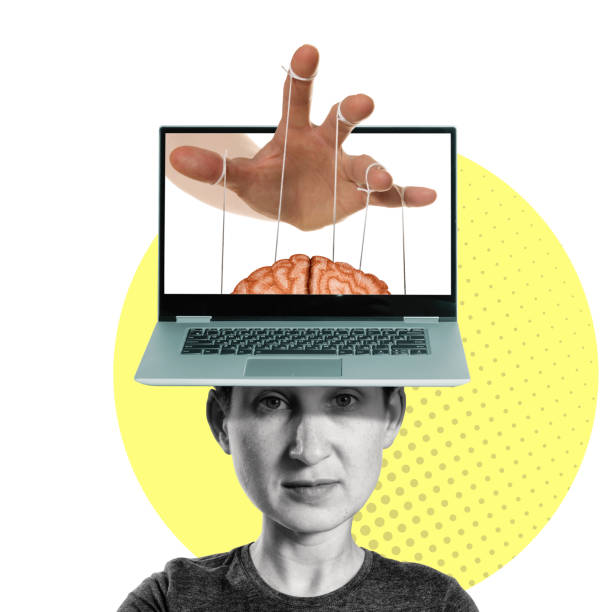WHAT THE INTERNET IS DOING TO OUR BRAINS
If you’re reading this article right now, chances are you spend a lot of time online. Whether it’s scrolling through social media, reading news articles, or watching cat videos on Tiktok, we are constantly connected to the internet. But have you ever stopped to think about the impact this constant digital exposure is having on our brains? That’s what Nicholas Carr’s book, The Shallows: What the Internet Is Doing to Our Brains, is all about. Here are some of the lessons I’ve learned from the book and how I’m overcoming the internet.
The internet is rewiring our brains.
One of the main arguments that Carr makes in his book is that the internet is rewiring our brains. He explains that our brains are not fixed or static, but rather plastic and adaptable. This means that our brains can change their structure and function in response to our experiences and environment. This is called neuroplasticity, and it is what allows us to learn new skills and adapt to new situations.
However, neuroplasticity also has a downside. It means that our brains can also change for the worse, depending on what we expose them to. Carr argues that the internet is one of those things that can have a negative impact on our brains. He says that the internet is designed to be addictive, stimulating, and distracting. It provides us with constant streams of information, images, sounds, and messages that compete for our attention. It also encourages us to multitask, switch between tasks, and click on links.
Carr says that these features of the internet are changing the way our brains work. He says that they are weakening our ability to concentrate, remember, and understand information deeply. He says that they are making us more prone to superficial and shallow thinking. He says that they are altering our neural pathways and circuits in ways that may be irreversible.
This idea scared me when I first read it. I realized that I was spending a lot of time online, doing things that were not very productive or meaningful. I realized that I was constantly checking my email, social media, news feeds, and other websites. I realized that I was rarely reading books or articles for more than a few minutes at a time. I realized that I was losing my ability to focus and think deeply about anything.
I decided that I needed to change my habits and reduce my exposure to the internet. I started by setting some limits on how much time I would spend online each day. I also turned off notifications on my phone and computer, so that I would not be tempted by every beep or buzz. I also deleted some apps that I found particularly addictive or distracting, such as games or social media platforms.
I noticed that by doing these things, I felt calmer and more focused. I also felt more in control of my time and attention. I started to enjoy reading books again and found myself getting immersed in stories and ideas. I also started to write more often and found myself expressing my thoughts more clearly and creatively.
The internet promotes shallow thinking.
Another argument that Carr makes in his book is that the internet promotes shallow thinking. He explains that the internet makes it difficult for us to engage in deep, contemplative thinking. He says that deep thinking requires sustained attention, reflection, and analysis. He says that deep thinking allows us to form complex and original thoughts, and to develop our wisdom and creativity.
However, the internet makes it hard for us to engage in deep thinking. He says that the internet distracts us with irrelevant or trivial information, and makes us impatient and restless. He says that the internet fragments our attention and prevents us from following a single line of thought for a long time. He says that the internet reduces our ability to synthesize and interpret information and make meaningful connections and associations.
"To see what is in front of one's nose needs a constant struggle." - George Orwell
Carr quotes one of his favorite authors, George Orwell, who wrote: "To see what is in front of one's nose needs a constant struggle." He says that the internet makes this struggle even harder, because it constantly bombards us with information that is not in front of our noses, but rather on our screens. He says that the internet makes us lose sight of what is important, relevant, and true.
This idea resonated with me when I read it. I realized that I was often skimming through information online, without really understanding or remembering it. I realized that I was often jumping from one topic to another, without really exploring or questioning anything. I realized that I was often relying on other people's opinions and summaries, without forming my own.
I decided that I needed to improve my thinking skills and deepen my understanding of things. I started by choosing some topics that I was interested in and reading more about them. I also started to ask myself more questions about what I was reading:
- What is the main point?
- What is the evidence?
- What are the implications?
- What are the counterarguments?
I also started to write down my thoughts and reflections on what I was learning and share them with others.
I noticed that by doing these things, I felt more curious and engaged. I also felt more confident and knowledgeable. I started to develop my own perspectives and insights on various issues and topics. I also started to appreciate the complexity and diversity of human thought and experience.
Digital media can be addictive.
A third argument that Carr makes in his book is that digital media can be addictive. He explains that digital media can trigger the release of dopamine in our brains, a neurotransmitter that is associated with pleasure and reward. He says that dopamine can make us crave more stimulation and gratification from our devices and make us feel restless and unhappy when we are away from them.
Carr says that digital media can be addictive because they provide us with variable rewards. He says that variable rewards are rewards that are unpredictable and inconsistent (likes, comments, messages, or news updates). He says that variable rewards can keep us hooked on our devices because they create a sense of anticipation and uncertainty and make us want to check them more often.
Carr also says that digital media can be addictive because they provide us with social rewards. He says that social rewards are rewards that are related to our social status like recognition, validation, or belonging. He says that social rewards can make us addicted to our devices because they make us feel good about ourselves and make us want to maintain or improve our social image.
Carr quotes a psychologist who said: "We are very sensitive to what others think of us." He says that digital media can exploit this sensitivity, by making us constantly aware of how others perceive us and how we compare to them. He says that digital media can make us obsessed with our online reputation and make us anxious about missing out or being left behind.
I’ve definitely experienced this myself – I’ll tell myself I’m only going to check Twitter for five minutes, and before I know it, an hour has gone by. It’s like my brain craves the dopamine hit that comes with every new notification.
I decided that I needed to break free from this addiction and regain control over my life. I started by acknowledging that I had a problem and that I needed help. I also started to seek support from my friends and family and to share my struggles and goals with them. I also started to look for help to address the underlying issues that were driving my addiction.
I also started to implement some practical strategies to reduce my internet usage. I started by setting some realistic and specific goals, such as limiting my online time to a certain number of hours per day, or avoiding certain websites or apps that were particularly problematic for me. I also started to track my progress and reward myself for achieving my goals. I also started to use some tools and apps that could help me block or limit my access to the internet, such as timers, filters, or blockers.
I also started to find some alternative activities that could fill the void that the internet was leaving in my life. I started by identifying some hobbies and interests that I enjoyed or wanted to try, such as reading, writing, playing music, cooking, and volunteering. I also started to reconnect with some old friends or make some new ones, who shared my interests and values. I also started to spend more time outdoors in nature.
I noticed that by doing these things, I felt more fulfilled and happier. I also felt more connected and authentic. I started to discover new aspects of myself and the world around me. I also started to appreciate the quality and depth of my offline experiences.
But don’t worry, it’s not all doom and gloom. Carr’s book is a call to action for us to be more mindful of our relationship with technology and to take steps to reclaim our ability to think deeply and engage in meaningful work. So, what can we do to combat the negative effects of the internet on our brains? Here are a few things that can help.
- Set boundaries around our use of technology: This means setting aside specific times of day to check email or social media or turning off notifications on our phones to reduce distractions. It also means taking breaks from technology altogether and engaging in activities that require sustained focus and attention.
- Engage in deep, sustained reading: Carr argues that the hyperlinked nature of digital reading is changing the way we read, making it more difficult for us to engage in deep, sustained reading. By setting aside time to read books and other long-form content, we can retrain our brains to engage in sustained thinking and focus.

Conclusion
These are just some of the lessons I learned from reading The Shallows by Nicholas Carr. There are many more insights and arguments that he makes in his book, and I highly recommend you read it for yourself. It will make you think differently about the internet and its effects on your brain and your life.
I hope that by sharing my experience, I have inspired you to reflect on your own relationship with technology and to make some positive changes if needed. Technology can be a powerful tool for learning, communication, and entertainment, but only if we use it wisely and responsibly. We can benefit from the internet without losing our ability to think deeply and independently and we can balance our online and offline lives without compromising our productivity and happiness.
I hope that you enjoyed reading this article as much as I enjoyed writing it.
If this article made you think about changing your habits and you don't know where to start, you can start by being self-aware, read about it in my blog on Self-awareness and Reflection where I also recommend some more books that you can read to understand yourself better.
Thank you for your attention and interest. If you have any comments or questions, please feel free to share them with me. I would love to hear from you. And remember, don't let the internet shallow your mind. Stay curious, stay focused, and stay deep.
Also, read Practicing Self-Love and Acceptance







































